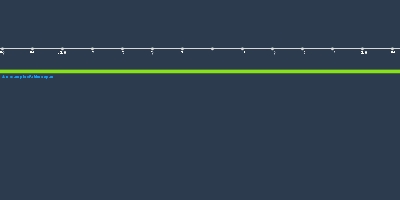Samuel (feb 16, 1067 BC – dec 16, 1020 BC)
Description:
1 Samuel 1:1-4:1; 7:2-10:27; 11:12-13:15; 15:1-16:13; 19:18-24; 25:1; 28:3–24Samuel was from the tribe of Levi. His mother was Hannah and his father was Elkanah. Elkanah had another wife, Peninnah, who berated Hannah for her barrenness; Hannah went to pray to God for a child and received blessing from Eli the priest. After giving birth to Samuel, she raised him for a time and then placed him in the care of Eli; she would visit him from time to time.
At the age of 12, Samuel was called by God to be a prophet; he revealed to Samuel the wickedness of Eli's sons. Samuel grew in his calling, and "all Israel from Dan to Beersheba recognized that Samuel was attested as a prophet of the Lord" (1 Samuel 3:20).
After the capture of ark by the Philistines, the nation of Israel came under their rule. After twenty years of oppression under the Philistines, Samuel rallied the Israelites to fight back and regain their independence. They defeated the Philistines, drivign them away and securing their borders once again (see 1 Samuel 7:2-17).
Samuel appointed his two sons, Joel and Abijah, to be Israle's next judges, but they lost the support of the people. The Israelites wanted a more centralized form of government, demanding Samuel to appoint for them a king. After warning them of the effects of kingship on the land, he relented and appointed Saul, son of Kish, as Israel's first king.
Samuel was close to Saul, and would rebuke him when he hastily sacrificed before battle, and for failing to eliminate everything belonging to the Amalekites, including its king, Agag (a decision which would later haunt the Jews with the rise of Haman during Esther's queenship).
Seeing Saul's decline in godly leadership, he secretly went to Bethlehem and appoint David as king, providing shelter for him when Saul sought to kill him.
Upon his retirement, Samuel composed a speech in which he addressed the Israelites, telling them of the importance of prophets and judges, and to heed God and not worship false gods, lest they fall away and be taken captive by the surrounding nations (see 1 Samuel 12).
We do not know how Samuel died, but it was likely due to old age. All of Israel mourned the loss of the prophet, and they buried him in Ramah.
Some time after his death, Saul had the Witch of Endor conjure Samuel's spirit in order to predict the result of an upcoming battle. Samuel was angered by his recalling, and told Saul that the Lord had left him and was against him (see 1 Samuel 28:3–24).
Added to timeline:
Date:
feb 16, 1067 BC
dec 16, 1020 BC
~ 46 years
